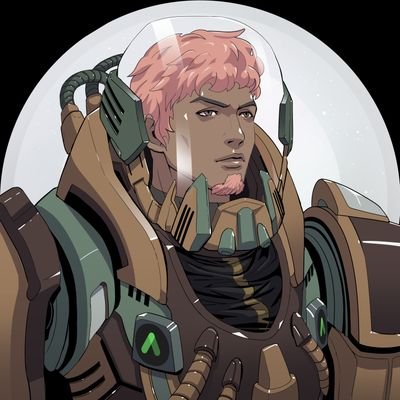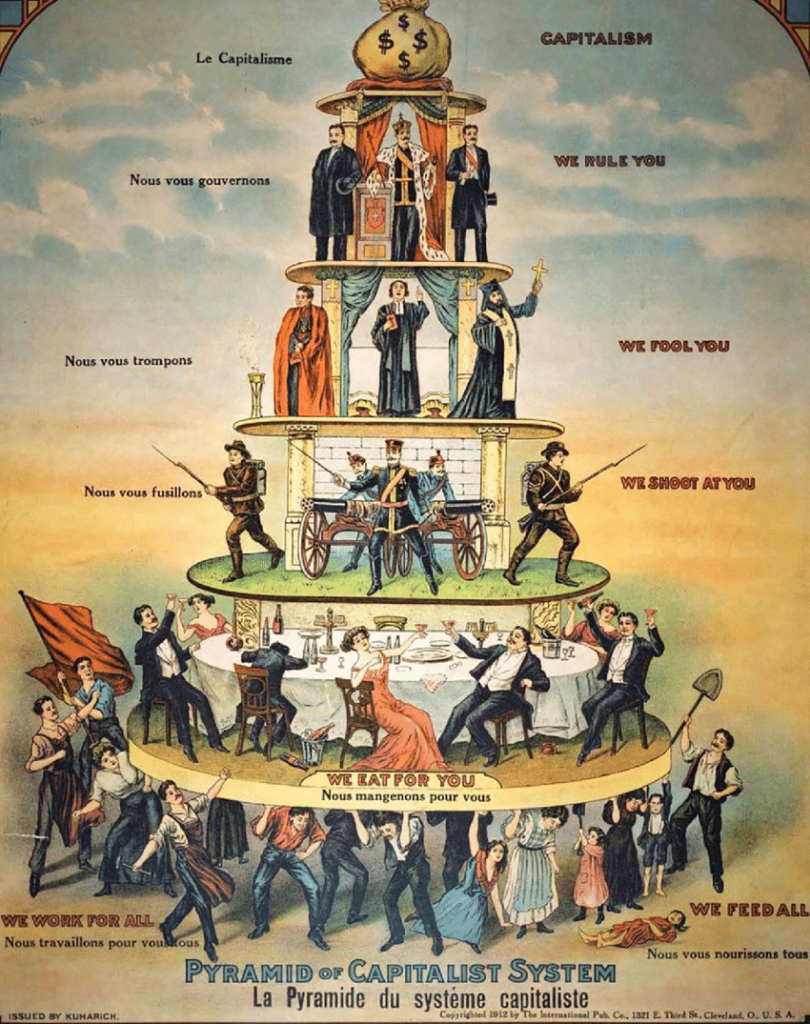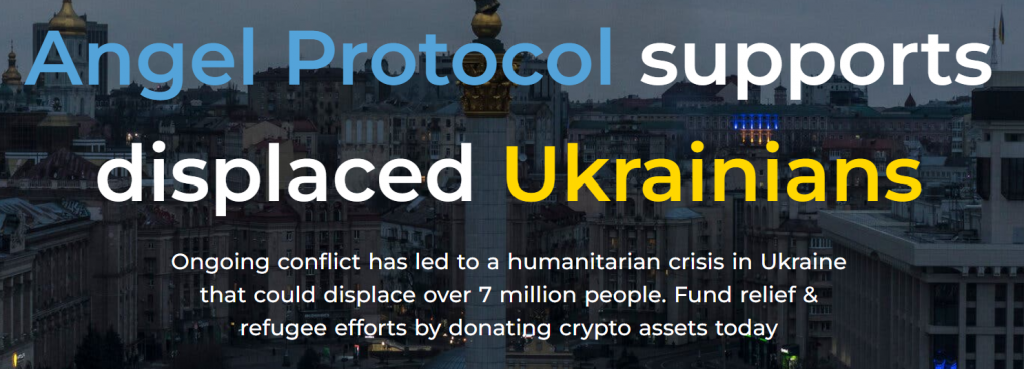
Written by: Ares
This paper aims to show my perspective on how inequality and capitalism contribute to the emergence of conflicts, whether between villages or nations. This report includes some good data on how increasing the quality of life by providing access to knowledge and promoting a tolerant viewpoint on many social differentiators may help to prevent or reduce tensions.
Furthermore, I have included an individual background, but also how Angel Protocol is fighting to minimize the damage initiated by the present Ukraine crisis.
Capitalism and Social Inequality
Capitalism is a political and economic system in which private individuals and for-profit businesses dominate a country’s commerce, investment, industry, and production, rather than the state. Because some individuals and groups are able to exploit and take advantage of what capitalism allows, the global shift towards capitalism has resulted in a major problem of rising economic inequality.
I feel this is partially due to the potential for higher profits, equality of opportunity, economic freedom, and the reduced role of the state. Markets allow money to circulate into new investments by combining invested capital with labor resources to produce goods and services that are sold for a profit, which generates additional capital for future ventures.
This creates a cycle of escalating profits and demonstrates how capital ownership in a capitalist society will foster inequality to some level as it generates more accumulation through investment.
Disparity in capitalist society is frequently driven by resource inequality and inequalities of inheritance, which result in variations in education, economic ability, and the amount of possibilities accessible.
As inequality is the underlying problem in societies that creates a steeper social gradient in areas such as health and educational performance, reducing inequality is the best way to improve the quality of the social setting, the real quality of life for everyone, and national standards of performance.

How Does Social Inequality Contribute to War?
What is the relationship between inequality and conflict? For many years, this question has preoccupied thinkers and practitioners. The common-sense argument appears to be persuasive: when there are large inequalities between the rich and the poor, the latter become frustrated and organize themselves to improve their economic position, even through the use of violence when necessary.
Armed conflict is a common and damaging feature of international politics. War has long been studied by philosophers because citizens want to avoid it while policy makers anticipate it. Today, war is a major concern among international relations intellectuals.
Looking at inter-country inequality is simply looking at poverty. Internationally renowned specialists such as Paul Collier and Nicholas Sambanis have discovered substantial correlation between a country’s wealth and its likelihood of experiencing civil war. Civil conflict is far more likely in poor countries than in prosperous countries.

The Effects of Armed Violence among Children and Adolescents
Armed conflict exposure during childhood and adolescence offers substantial mental health hazards and development challenges to children. The incidence and severity of mental problems in conflict-affected children are linked to the exposure to various types of violence, the length of the conflict, and the character of witnessing intensely traumatic experiences.
Although there is a well-established link between childhood exposure to armed conflict and future psychological problems, the rumored frequency of mental disorders differs greatly.
For example, studies of children who have been traumatized by the Israeli–Palestinian conflict have found a prevalence of post-traumatic stress disorder (PTSD) ranging from 18 percent to 68.9%. According to one study, 60.5% of children exposed to the ongoing Syrian Civil War fulfill the criteria for at least one psychological condition.
Armed conflict has repercussions on a child’s social and organic growth. The psychosocial manifestations of war trauma in children include proximal and distal effects on family interactions, peer relationships, educational outcomes, and overall life satisfaction.
Conflict-related stigma, for example, is common in many post-conflict settings and has been shown to exacerbate psychological state problems. Armed conflict’s psychosocial consequences may have an impact on children’s ability to barter social support and resources, as well as basic needs, in the post-conflict environment – all with serious consequences for mental health. (Frounfelker R. , 2019)

How Can We Decrease the Chances of Future Wars?
To begin, reducing socioeconomic inequality through boosting access to education may, in theory, lead to dissatisfaction. When disadvantaged populations get access to education, their employment and political involvement aspirations rise.
Improved levels of economic and political equality must be fostered. Tunisia’s revolution, which began the Arab Spring, is a prime example. People’s economic position and education increased in this region, but their political involvement possibilities remained limited. Peace education might also be used to avoid potential conflicts.
Second, it is critical to consider citizenship and property rights. Without these rights, underprivileged populations’ choices for improving their condition are severely constrained. Citizenship and property rights are important issues in many wars, such as the land disputes in Africa’s Great Lakes region.
The takeover of ancestral property by affluent businesses was one of the reasons for the conflict in the Democratic Republic of the Congo. With certain ethnic groups in a better position to benefit, ethnic conflicts have risen.
Third, in order to reduce inequality between various groups following war, the peace process should include players from all groups. Even while reaching a resolution between the larger groups is sometimes more achievable, others should be engaged in the process as early and as closely as possible, even if they were not involved in the conflict.
Evidence suggests that when inequality interacts with racial, religious, or regional differences, a significant likelihood of civil strife arises. Inequality in society must be handled seriously.
This involves examining how disparities are addressed, focusing on citizenship and property rights, as well as inclusive peace processes, and ensuring that rebuilding efforts in unstable post-conflict contexts do not rekindle old disputes. This not only leads to a more egalitarian society, but it also has the potential to avert conflict.
How Angel Protocol Can Help the Current Ukraine Situation?
The Russian invasion has triggered a humanitarian disaster in Ukraine that might result in the displacement of nearly 7 million people.
Angel’s Ukrainian Relief Endowment will provide funding for relief and refugee operations both now and in the future. Everyone can assist by contributing cryptocurrency today in form of $LUNA, $UST, and $ETH.
Donations will be directed entirely to Ukrainian humanitarian assistance initiatives. Half of the funds will be utilized for immediate relief, while the other half will be invested in permanent endowments to give continued assistance to displaced people for years to come.

A Bit About Myself
The goal of this section is to illustrate my story, my point of view, my journey so far, and my desired destination.
Never in my life did I imagine my crypto journey would begin under these circumstances. This ambition, to be involved in the ecosystem I care most about, Terra, seemed far away at first. To understand my story, I need to take you into the past.
Everything has changed since Covid, at least for me. My troubles started when life as I knew it slipped away in the form of a lockdown, which effectively placed not only my body, but also my mind, in cold, empty isolation.
My only two companions were incertitude and anxiety. It was cold and lonely both on the streets and in my head. But this isn’t news. Everyone has gone through this phase in the last two years.
The challenging part came when both of my parents lost their small business as a direct consequence of covid regulations and a budgetary deficit which is known to have been much worse in an already poor Eastern European country.
This, I believe, signified the turning point and the early stages of something I can’t quite define now, even in hind sight.
Moving on to more positive topics, since everything has a bright side, the lockdown and subsequent social isolation made me question whether I could invest my time and effort in a constructively creative and productive manner. As a matter of course, being a teen compelled me to find out what makes money from home only using my phone.
From that day forward, I began researching this space from the ground up, beginning with YouTube videos about blockchain technology and gradually progressing to more complex concepts.
Terra blockchain and, of course, my first crypto love, Luna, were introduced to me in January 2021. If I recall correctly, Luna was around $2.00 each. Unfortunately, due to my age and lack of funds, I was unable to ape in the way I would have liked to, but I did witness it go to the moon while learning about the entire ecosystem whenever I had free time.
It’s been over a year since then, but only recently has there been a glimmer of hope. After wrapping up various tasks for the Terra Ecosystem, I was recruited as an intern at Intern Capital and TerraSpaces, and thus my journey began.
What are my goals as an intern? First and foremost, my main goal is to grow as a person, to learn and enhance my skills, and to broaden my knowledge of this field.
Second, and equally important, I’m attempting to ensure a steady hobby which will allow me to gain some crypto exposure and build my portfolio from the scratch.
Basically, I’m trying to see this as a regular job which I value, and I’m using my skills and time to make a real contribution all while trying to earn my own revenue and sustain myself without any need for external support.
I’m trying to stay optimistic during these uncertain, troubling times. My location is next to the conflict zone which, as you can imagine, makes it hard to focus sometimes. I’ve recently decided to use this time to further develop my writing skills, and my education. These things will help keep my mind occupied and will foster my growth as an individual, and a creative.
I personally and publicly want to thank everyone who has helped me grow in this space, and I look forward to continuing to provide value to the ecosystem. If you made it this far, thank you for reading my story.
Bibliography
- Living through war: Mental health of children and youth in conflict-affected areas (2019).
- Klusener, E. (2017) Are capitalism and inequality linked? – Global Social Challenges, Global Social Challenges.
- Shadle, M. and Shadle, M. (2017) Capitalism and War: Are They Linked? | Catholic Moral Theology, Catholicmoraltheology.com.
- Willems R., 2014, When do inequalities cause conflict? – Focus on citizenship and property rights – The Broker (2012).

